Intro
Discover potassium-rich foods, including bananas, leafy greens, and nuts, to boost heart health, lower blood pressure, and support muscle function with essential potassium intake and balanced diets.
Potassium is an essential mineral that plays a crucial role in maintaining various bodily functions, including heart health, blood pressure, and bone density. It is abundant in many foods, making it easy to incorporate into our daily diets. With the increasing awareness of the importance of potassium, many people are now looking for ways to boost their intake of this vital nutrient. In this article, we will delve into the world of potassium-rich foods, exploring their benefits, and providing practical tips on how to make them a staple in your diet.
A well-balanced diet that includes a variety of potassium-rich foods can have a significant impact on our overall health and wellbeing. Potassium helps to regulate fluid balance in the body, supports healthy blood pressure, and aids in the transmission of nerve impulses. It also plays a critical role in maintaining strong bones and muscles, making it an essential nutrient for athletes and individuals who engage in regular physical activity. With the numerous benefits of potassium, it's no wonder that health experts and nutritionists are encouraging people to eat more potassium-rich foods.
The importance of potassium in our diets cannot be overstated. Many people are unaware of the rich sources of potassium that are available in various foods, and as a result, they may be missing out on the numerous health benefits that this nutrient has to offer. By educating ourselves on the different types of potassium-rich foods and incorporating them into our diets, we can take a proactive approach to maintaining our health and reducing the risk of chronic diseases. Whether you're looking to boost your energy levels, support your heart health, or simply maintain a healthy and balanced diet, potassium-rich foods are an excellent place to start.
Potassium-Rich Foods
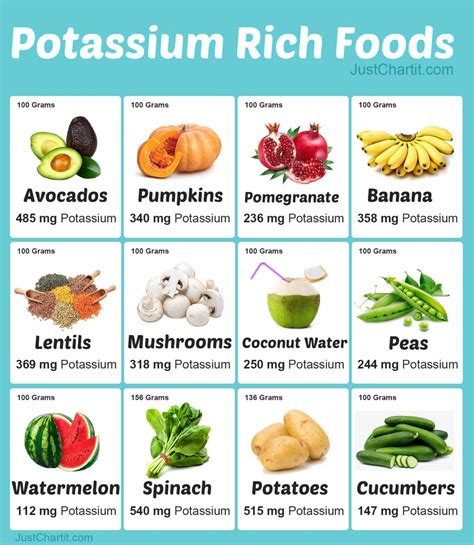
Potassium is found in a wide variety of foods, including fruits, vegetables, whole grains, and lean proteins. Some of the richest sources of potassium include leafy green vegetables such as spinach, kale, and collard greens, as well as fruits like bananas, avocados, and apricots. Other potassium-rich foods include sweet potatoes, carrots, and squash, as well as beans, lentils, and nuts. By incorporating these foods into your diet, you can easily meet your daily potassium needs and reap the numerous health benefits that this nutrient has to offer.
Top 10 Potassium-Rich Foods
Here are the top 10 potassium-rich foods that you should include in your diet: * Spinach: 1 cup cooked = 840 mg of potassium * Sweet potatoes: 1 medium = 542 mg of potassium * Avocados: 1 medium = 708 mg of potassium * Bananas: 1 medium = 422 mg of potassium * Carrots: 1 cup cooked = 425 mg of potassium * Beans: 1 cup cooked = 829 mg of potassium * Lentils: 1 cup cooked = 731 mg of potassium * Nuts: 1 ounce = 176 mg of potassium * Squash: 1 cup cooked = 443 mg of potassium * Apricots: 1 cup dried = 1517 mg of potassiumBenefits of Potassium-Rich Foods
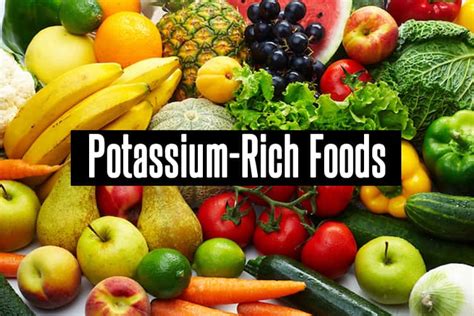
The benefits of potassium-rich foods are numerous and well-documented. By incorporating these foods into your diet, you can help to regulate your blood pressure, support healthy bone density, and reduce your risk of chronic diseases such as heart disease and stroke. Potassium-rich foods can also help to boost your energy levels, support healthy muscle function, and promote overall health and wellbeing.
Potassium and Heart Health
Potassium plays a critical role in maintaining healthy heart function. It helps to regulate blood pressure, reduce the risk of heart disease, and support healthy blood vessel function. By incorporating potassium-rich foods into your diet, you can help to lower your blood pressure, reduce your risk of heart disease, and promote overall heart health.How to Incorporate Potassium-Rich Foods into Your Diet
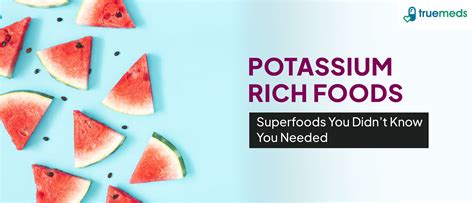
Incorporating potassium-rich foods into your diet is easier than you think. Here are some practical tips to help you get started:
- Start your day with a potassium-rich breakfast, such as oatmeal with banana and almond milk
- Snack on potassium-rich fruits and vegetables, such as apples and carrots
- Incorporate potassium-rich beans and lentils into your meals, such as chili or lentil soup
- Add potassium-rich nuts and seeds to your meals, such as almonds and pumpkin seeds
- Try new potassium-rich foods, such as sweet potatoes and squash
Potassium-Rich Meal Ideas
Here are some delicious and healthy meal ideas that are rich in potassium: * Grilled chicken and vegetable skewers with sweet potatoes and carrots * Lentil soup with whole grain bread and a side salad * Baked salmon with roasted vegetables and quinoa * Veggie burgers with avocado and sweet potato fries * Smoothies with banana, spinach, and almond milkPotassium Deficiency and Toxicity
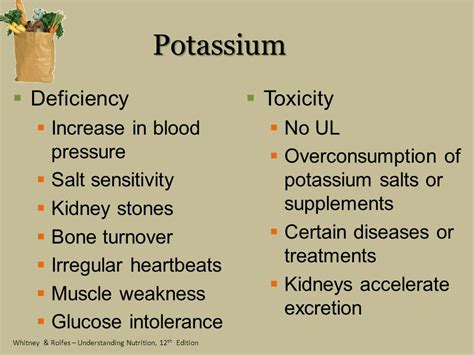
While potassium is an essential nutrient, it's possible to get too much or too little of it. Potassium deficiency, also known as hypokalemia, can cause symptoms such as muscle weakness, fatigue, and heart palpitations. On the other hand, potassium toxicity, also known as hyperkalemia, can cause symptoms such as nausea, vomiting, and abdominal cramps. It's essential to maintain a balanced diet and consult with a healthcare professional if you have any concerns about your potassium levels.
Potassium Deficiency Symptoms
Here are some common symptoms of potassium deficiency: * Muscle weakness * Fatigue * Heart palpitations * Muscle cramps * Constipation * Abdominal crampsPotassium Supplements
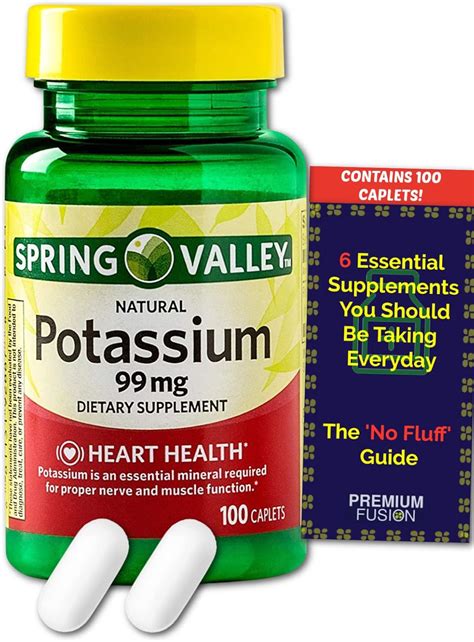
While potassium-rich foods are the best way to meet your daily potassium needs, supplements can be helpful in certain situations. Potassium supplements can be beneficial for individuals who have a potassium deficiency or are at risk of developing one. However, it's essential to consult with a healthcare professional before taking any supplements, as they can interact with medications and have adverse effects in high doses.
Types of Potassium Supplements
Here are some common types of potassium supplements: * Potassium gluconate * Potassium citrate * Potassium acetate * Potassium chlorideConclusion and Final Thoughts

In conclusion, potassium is an essential nutrient that plays a critical role in maintaining various bodily functions. By incorporating potassium-rich foods into your diet, you can help to regulate your blood pressure, support healthy bone density, and reduce your risk of chronic diseases. Whether you're looking to boost your energy levels, support your heart health, or simply maintain a healthy and balanced diet, potassium-rich foods are an excellent place to start. Remember to always consult with a healthcare professional before taking any supplements, and make sure to maintain a balanced diet to meet your daily potassium needs.
We invite you to share your thoughts and experiences with potassium-rich foods in the comments below. Have you noticed any benefits from incorporating these foods into your diet? Do you have any favorite potassium-rich recipes or meal ideas? Let's start a conversation and explore the world of potassium-rich foods together!
What are the benefits of potassium-rich foods?
+Potassium-rich foods can help to regulate blood pressure, support healthy bone density, and reduce the risk of chronic diseases such as heart disease and stroke.
What are some rich sources of potassium?
+Rich sources of potassium include leafy green vegetables such as spinach, kale, and collard greens, as well as fruits like bananas, avocados, and apricots.
Can I get too much potassium from food?
+Yes, it is possible to get too much potassium from food, especially if you have kidney disease or are taking certain medications. However, this is rare and usually occurs in individuals who have underlying health conditions.
Do I need to take potassium supplements?
+Most people can meet their daily potassium needs through a balanced diet that includes a variety of potassium-rich foods. However, if you have a potassium deficiency or are at risk of developing one, supplements may be beneficial. Consult with a healthcare professional before taking any supplements.
How can I incorporate more potassium-rich foods into my diet?
+Start by adding potassium-rich foods to your meals and snacks, such as bananas, spinach, and sweet potatoes. You can also try new recipes and meal ideas that feature potassium-rich ingredients.
